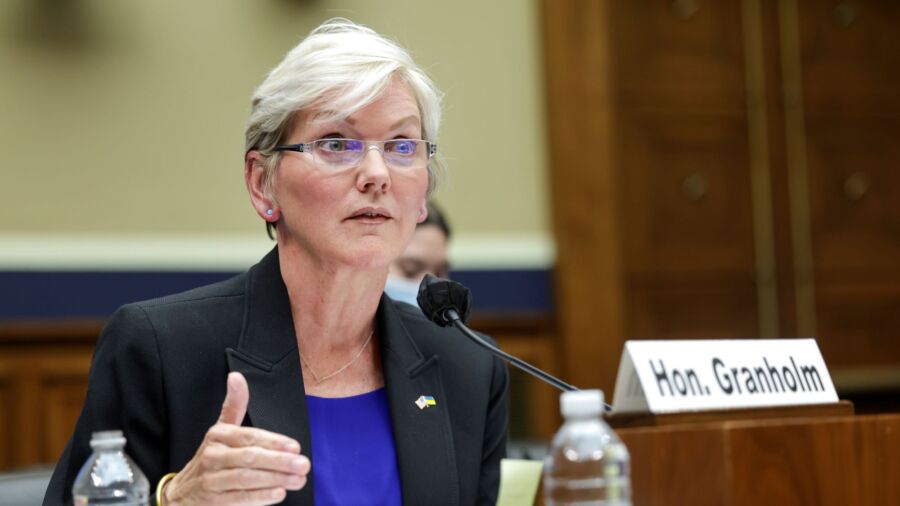The Biden administration has proposed imposing energy efficiency standards for residential water heaters, a move that it said will help consumers save $11.4 billion every year and combat climate change.
The proposed rule would require that the most common-sized electric water heaters use heat pump technology, and gas-fired instantaneous water heaters use condensing technology to achieve energy efficiency.
The United States last updated its energy efficiency standards for water heaters in 2010.
The Department of Energy (DOE) said the rule builds on consensus-based recommendations from a wide range of stakeholders and would apply to new water heater models starting in 2029 if finalized.
The standards are expected to reduce 501 million metric tons of harmful carbon dioxide emissions over a span of 30 years, equivalent to the combined annual emissions of 50 percent of homes in the United States.
“Overall, the proposed rule would reduce energy use from residential water heaters by 21 percent, which translates into $11.4 billion in consumer savings and $2.8 billion in health benefits each year,” DOE said in a statement.
Energy Secretary Jennifer Granholm said that the proposal builds on “the unprecedented actions already taken by this Administration to lower energy costs for working families across the nation.”
“Today’s actions—together with our industry partners and stakeholders—improve outdated efficiency standards for common household appliances, which is essential to slashing utility bills for American families and cutting harmful carbon emissions,” Ms. Granholm said.
Water heating accounts for roughly 13 percent of annual residential energy consumption and consumer utility costs, according to DOE.
DOE stated that the Biden administration’s Inflation Reduction Act allows households to opt for more efficient models when replacing their water heaters by increasing the affordability of heat pump water heaters through tax credits, rebates, and other incentives.
The department stated that its past and planned energy efficiency actions under the Biden administration will collectively “save Americans $570 billion and reduce greenhouse gas emissions by more than 2.4 billion metric tons cumulatively over 30 years.”
Hearing on Biden’s Proposed Rules
This came just days after the Subcommittee on Economic Growth, Energy Policy, and Regulatory Affairs opened a hearing on the Biden administration’s proposed rules on home appliances.
Republicans on the committee argued that the DOE’s proposed appliance efficiency standards would be burdensome and costly for Americans, hitting lower-income families the hardest.
Chairman Pat Fallon (R-Texas) said that DOE’s proposed rulemaking on home appliances may result in increased costs for manufacturers, which could eventually be passed on to American consumers.
“This slate of rules includes the controversial Consumer Convention Cooking Products Rule, which imposes stricter requirements on gas stoves. But it doesn’t stop there,” Mr. Fallon told the hearing.
“There are other rulemakings under consideration for dishwashers, refrigerators, water heaters, furnaces, air conditioners, and other household appliances under the guise of improving energy efficiency as proscribed by the Environmental Policy and Conservation Act, or EPCA,” he added.
“Many of these rules result in hundreds of millions in costs to manufacturers—costs which will ultimately fall to consumers.”
The Gas Stove Protection and Freedom Act is meant to shield those appliances from any significant new restrictions emanating from the Consumer Product Safety Commission (CPSC), an agency created by Congress in 1972 through the Consumer Product Safety Act. It bars the CPSC from regulating gas stoves as a banned hazardous product.
It prevents the agency from putting any consumer product safety standards into effect that would either ban gas stoves or “substantially increase the average price of gas stoves in the United States.”
Nathan Worcester and Tom Ozimek contributed to this report.
From The Epoch Times

